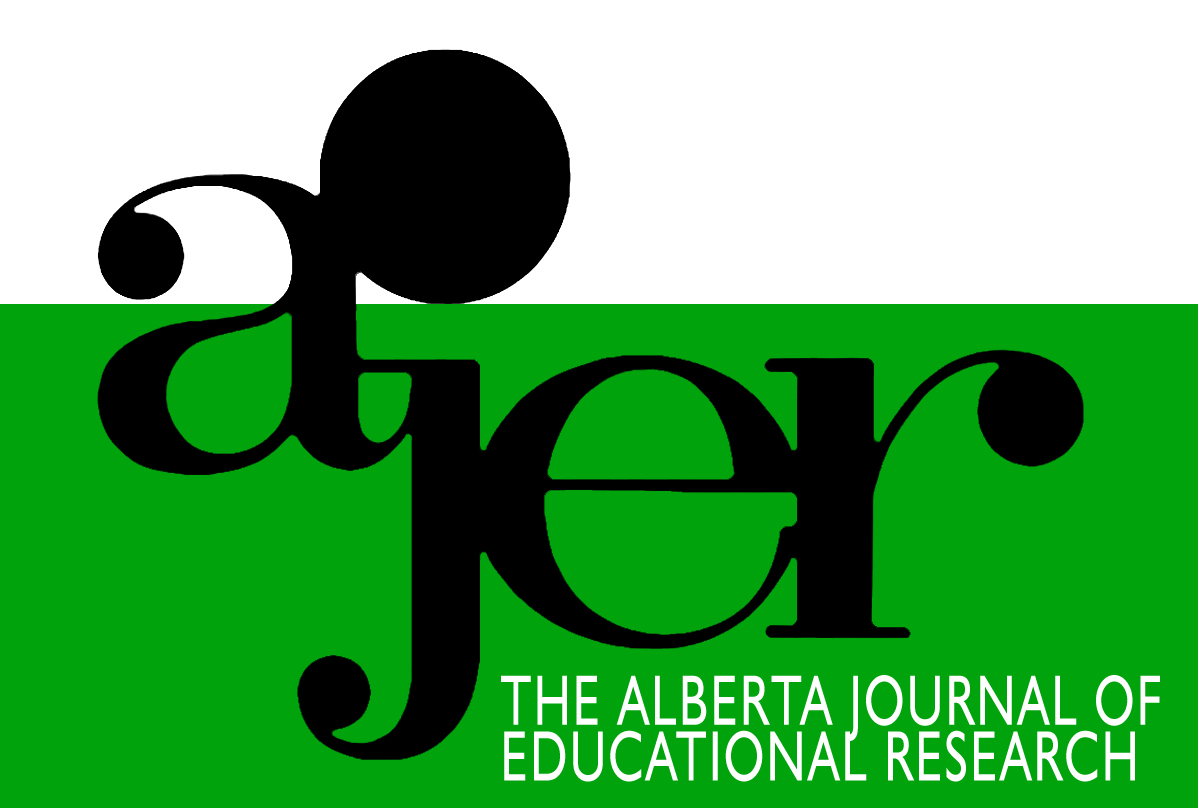Examining the Pedagogical and Institutional Phenomena that Influence the Facilitation of Critical Consciousness
DOI:
https://doi.org/10.55016/ojs/ajer.v66i2.56614Abstract
This study engaged grounded theory methodology to explore how critical pedagogy shaped and influenced the development of critical consciousness among preservice teacher candidates. The teacher participants revealed that facilitating critical consciousness was a complex process influenced by pedagogical and institutional mechanisms. The pedagogical mechanism of coercive power and the institutional mechanism of compressed time both limited opportunities for student agency and constrained the development of critical consciousness. Two professors were successful in countering the negative consequences of these institutional and pedagogical mechanisms by enacting a legitimate form of power and facilitating dialogical learning contexts. These efforts are highlighted in the paper as key attributes of consciousness raising learning experiences among the preservice teachers.
Keywords: preservice teachers, critical pedagogy, critical consciousness, Faculty of Education, course-based learning experiences
Cette étude, qui repose sur une méthodologie inspirée de la théorie à base empirique, explore la mesure dans laquelle la pédagogie critique a influencé le développement d’une conscience critique chez des enseignants en formation. Les enseignants participants ont révélé que la promotion de la conscience critique est un processus complexe qui est influencé par des mécanismes pédagogiques et institutionnels. Le mécanisme pédagogique du pouvoir coercitif et le mécanisme institutionnel du calendrier comprimé limitent tous les deux la marge de manœuvre des étudiants et contraignent le développement de la conscience critique. Deux professeurs ont réussi à contrer les conséquences négatives de ces mécanismes institutionnels et pédagogiques en exerçant une forme de pouvoir légitime et en facilitant des contextes d’apprentissage dialogique. L’article présente ces efforts comme étant les caractéristiques principales des expériences d’apprentissage ayant favorisé la prise de conscience chez les enseignants en formation.
Mots clés: enseignants en formation; pédagogie critique; conscience critique; faculté d’éducation; expériences d’apprentissage basées sur les cours
Downloads
Published
Issue
Section
License
UNIVERSITY OF ALBERTA COPYRIGHT LICENSE AND PUBLICATION AGREEMENT
If accepted, authors will be asked to sign a copyright agreement with the following points:
A. Where there is any inconsistency between this Copyright License and Publication Agreement and any other document or agreement in relation to the same subject matter, the terms of this Agreement shall govern.
B. This document sets out the rights you are granting in relation to publication of your article, book review, or research note entitled (the “Article”) through inclusion in the academic journal titled Alberta Journal of Educational Research (the “Journal”) published through the Faculty of Education, representing the Governors of the University of Alberta (the “Journal Editor”).
C. There will be no payment to you for this publication and grant of rights. In consideration of the agreement to publish the Article in the Journal:
1. You are warranting that:
- the content of the Article is your original work, and its content does not contain any material infringing the copyright of others; or, where the Article is not entirely your original work, you have obtained all necessary permissions in writing to grant the rights you are giving in this agreement;
- the content of the Article does not contain any material that is defamatory of, or violates the privacy rights of, or discloses the confidential information of, any other person;
- the Article has not been published elsewhere in whole or in part, and you will not allow publication of the Article elsewhere without the consent of the Journal Editor;
- the names of all co-authors and contributors to the Article are:
2. You agree to license the copyright in the Article to the Journal Editor, on a worldwide, perpetual, royalty free basis; and to the extent required by the terms of this agreement. You shall retain the right at all times to be acknowledged as the/an author of the Article.
3. You further agree that the Journal Editor has the entitlement to deal with the Article as the Journal Editor sees fit, and including in the following manner;
- The right to print, publish, market, communicate and distribute the Article and the Journal, in this and any subsequent editions, in all media (including electronic media), in all languages, and in all territories, ing the full term of copyright, and including any form of the Article separated from the Journal, such as in a database, abstract, offprint, translation or otherwise, and to authorize third parties to do so;
- The right to register copyright of the Journal;
- The right to edit the Article, to conform to editorial policy as the Journal Editor sees fit.
4. If any co-author or contributor to the Article does not sign this agreement, the Journal Editor reserves the right to refuse to publish the Article.



